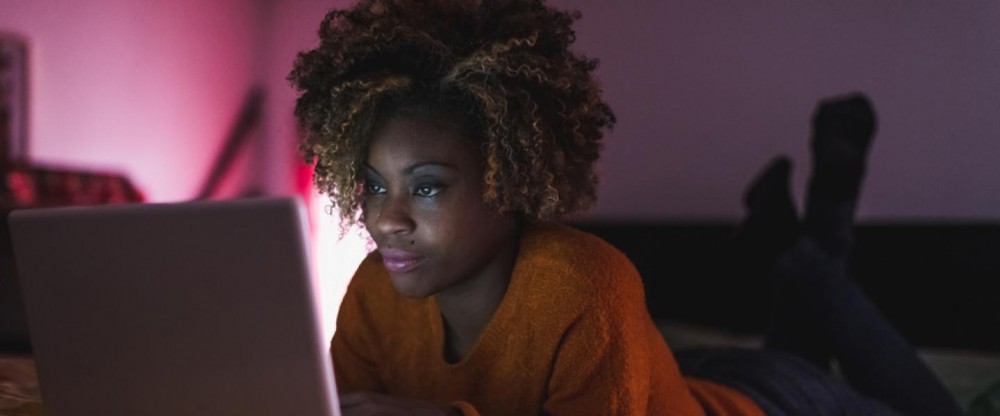Why Electronics May Stimulate You Before Bed
Ninety percent of people in the U.S. admit to using a technological device during the hour before turning in, and children often use electronic media to help them relax at night. If you’re among these nighttime technology-users, you may not realize the extent to which this can make it harder to settle down to sleep. But it can. The truth is, using electronic devices before bedtime can be physiologically and psychologically stimulating in ways that can adversely affect your sleep.
Here’s what happens: Using TVs, tablets, smartphones, laptops, or other electronic devices before bed delays your body’s internal clock (a.k.a., your circadian rhythm), suppresses the release of the sleep-inducing hormone melatonin, and makes it more difficult to fall asleep. This is largely due to the short-wavelength, artificial blue light that’s emitted by these devices. The more electronic devices that a person uses in the evening, the harder it is to fall asleep or stay asleep. Besides increasing your alertness at a time when you should be getting sleepy, which in turn delays your bedtime, using these devices before turning in delays the onset of REM sleep, reduces the total amount of REM sleep, and compromises alertness the next morning. Over time, these effects can add up to a significant, chronic deficiency in sleep.
All of this is true for kids and adults alike. It’s important to initiate a digital curfew for the entire family, a time at which you and your kids turn off all electronic devices for the night. Try setting the curfew at two hours before bed, one hour before bed, or even 30 minutes before bed—the earlier in the evening, the better, but whatever feels realistic.
One good substitution is reading. Reading an old-fashioned, printed book under lamplight (as opposed to bright overhead lighting) is a great choice. And using an e-ink e-reader (like the Kindle Paperwhite, as opposed to the Kindle Fire) is also a good idea, because it doesn't produce the same type of blue light that a smartphone or tablet would.
The right head support can greatly improve how comfortable you feel in bed.Nearly one-quarter of all workers have shifts that are not during the daytime, and more than two-thirds of these workers have problem sleepiness and/or difficulty sleeping. (NHLBI, 2005) One-third of shift workers state that they sleep less than six hours per night on workdays, and 30 percent report that they only get a good night’s sleep a few night’s per...Explore how today's modern family sets rules for sleep, navigates the use of technology in the bedroom, how parents can...The Electronics and Sleep infographic highlights how technology affects the modern family and how parents can help design a sleep...Orexin receptor antagonists: A new class of sleeping pill Find out more about orexin, and a new type of sleep...Great news: more than three-fourths (76%) of those surveyed say that they had a good night’s sleep at least a...When it comes to your health, sleep plays an important role. While more sleep won’t necessarily prevent you from getting...Whether you remember them or not, dreams are a normal part of sleep. Everyone dreams for a total of about...Reflecting the sun’s natural movement in a 24-hour orbit around the earth, your body’s circadian rhythm has a 24-hour cycle....A cup of coffee isn’t the only thing that can cause your energy levels to jump around. The other reason...

Source: Internet





